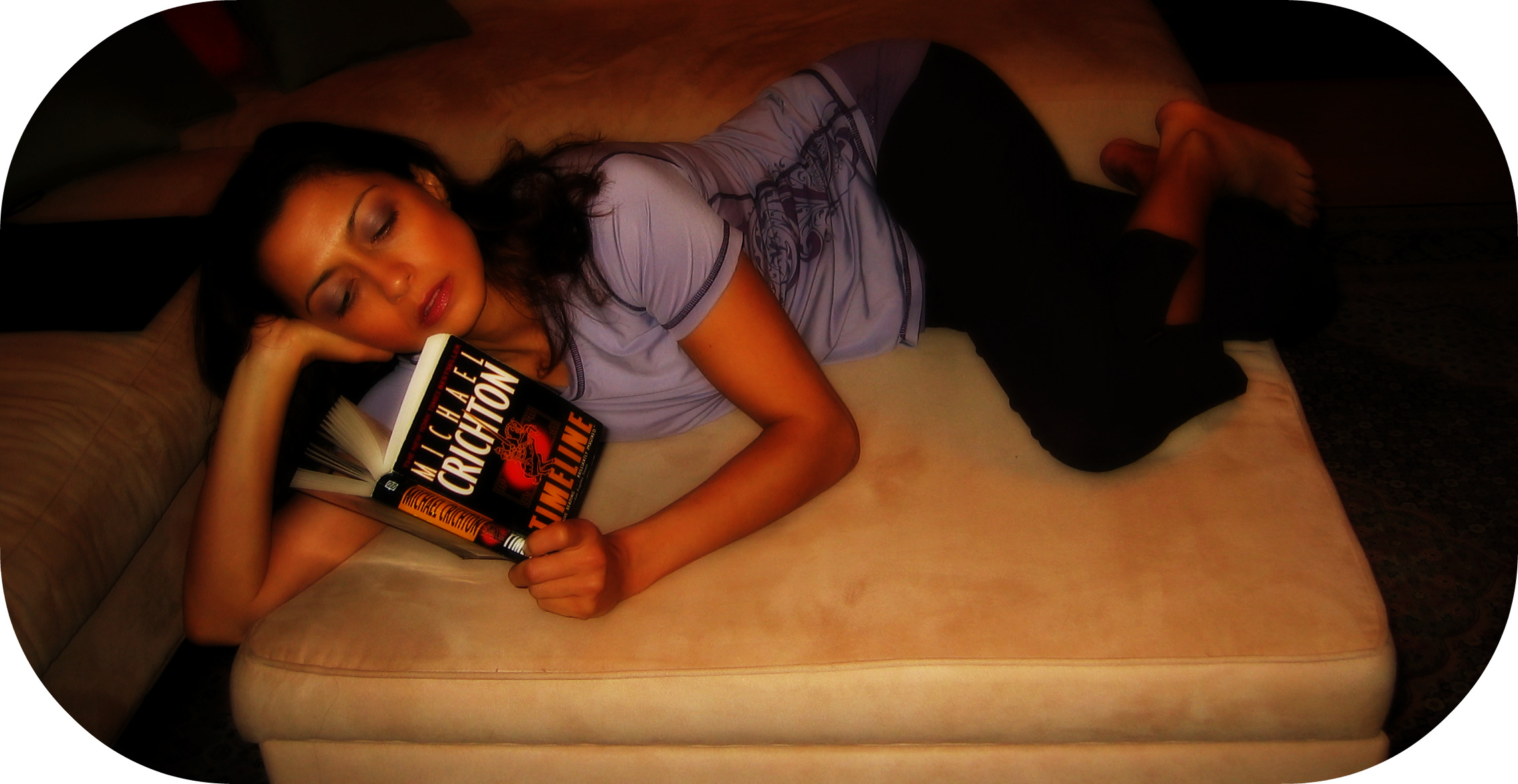I am not a history buff. I had no particular reason to read the “Timeline” other than Michael Crichton wrote it. I am very happy I followed my notion. I read the first 50 pages two months ago, forgot all about it, and then picked it up to keep me company on some long flights. The writing of Crichton is what I crave through and through. The story and plot are sometimes even secondary motives to read a Crichton novel. The first 4 books which I happened to read, in no particular order on Crichton’s account, were brilliantly written, and kept me intrigued to the last page. I was not disappointed here either.
The fantasy and adventures of paying a visit to the past, and not just our own past but decades and centuries past is our central theme. Crichton renews yet again the popular well-used concept of time machines and time travel with his unique twist. In this story, Crichton’s masterpiece mind, Robert Doniger, has created a machine to send people back to the infamous year of 1357 in feudal France. The theory behind the brains of this machine is intriguing – difficult to fully fathom and yet very original. According to the genius scientist of the book, we do not live in a single “universe“, we live in a
“multiverse“. Many many other universes exist at the same time we do, in a different dimension in space, representing different times in such a way that the past of our own universe is happening in another universe at our present time. The past and present are no longer a function of a moving arrow in one dimension, completely dependent and tightly wound to one another. No. This is a world of many possibilities so stretching the imagination is critical!

The brilliance of Crichton’s creation is not just this fictional theory, it is the solution for our accessing these other universes from our own: sending a human fax. As a result, the machine can easily transport – “fax over” – a human from one universe at one time to another at another point in time. It can then successfully retrieve them should they find themselves in the “special spot” and signal over with the “special marker” their intent to come back, all within the 37 hour time span allotted to them in this medium of time and space. If the 37 hour period is missed, the “quantum channel” is closed and the characters are caught amidst a bloody civil war between mad lords, starving peasants and knights-in-armor.
Reading is the best pastime for an active mind! If you like to see the other book reviews, check the index of In Print.
Professor Edward Johnston with his team of historians and archaeologists are settled in Dordogne region of France. They are engrossed in researching the sites where medieval towns of Castelgard and La Roque used to exist. The suspicious details of a site raises curiosity and concerns of Dr. Johnston who flies immediately to ITC’s headquarters in New Mexico to investigate the matter. At the same time back in Dordogen, his team of archaeologists discover objects amongst the ruins which should not have existed at the time, according to their artifacts. The ultimate shocker drops on them when, among these objects, they have the unmistakable recognition of their professor’s eyeglasses. Ou researchers, Chris Hughes, Kate Erickson, David Stern, Andre Marek, fly to ITC, with deep worries about their professor. Robert Doniger, the founder of ITC, the stern, cold and rude director in charge of all operations, meets them with enthusiasm. They soon learn that Dr. Johnston, on his own accord, has traveled back in time to the year 1357, to visit the site they were excavating, but his return is delayed beyond normal “recovery” procedures. They learn about the time machine and time travel here for the first time here. Doniger persuades them to travel back in order to find and rescue Professor Johnston. Accompanying them is a hardened marine who apparently can guarantee their safety. Thus our adventures to 1357 unfolds with gory details.
Crichton’s brilliant account of the world of 1357 takes you back to a time which seems thousands of years in regression of civilization. The advancements since then in our civilization, technology, medicine, science and general knowledge of the world are astounding. The suspense is unpredictable, well-narrated, and interesting. The plot thickens and the reading becomes enjoyable albeit challenging.
My hats off to Crichton for his in-depth anal descriptions of the war lords, the castles, the customs, the fortresses, the soldiers, the knights, the swordsmanship, the languages (from Occitan to Latin to old English and very old French), and the endless adventures which came upon our time travelers. Even as he lost me in the bottomless pit of his vocabulary, I enjoyed immensely reading about the year 1357. He tested what I realize is a limited vocabulary and even more limited knowledge of world history – and I am humbled and inspired to expand on both.
For weeks after reading of this book, I would find myself thinking about life in the year 1357. I would imagine what my life would have been like, and I shudder at the grimness of it all. The feeling was eerie, exciting, and foreign and the sensations produced from these images is simple: I am delighted to be living in current present day.
 I am Farnoosh, the founder of Prolific Living. So glad you are here. My mission is to empower you to unblock your creative genius to live your dream life.
I am Farnoosh, the founder of Prolific Living. So glad you are here. My mission is to empower you to unblock your creative genius to live your dream life.